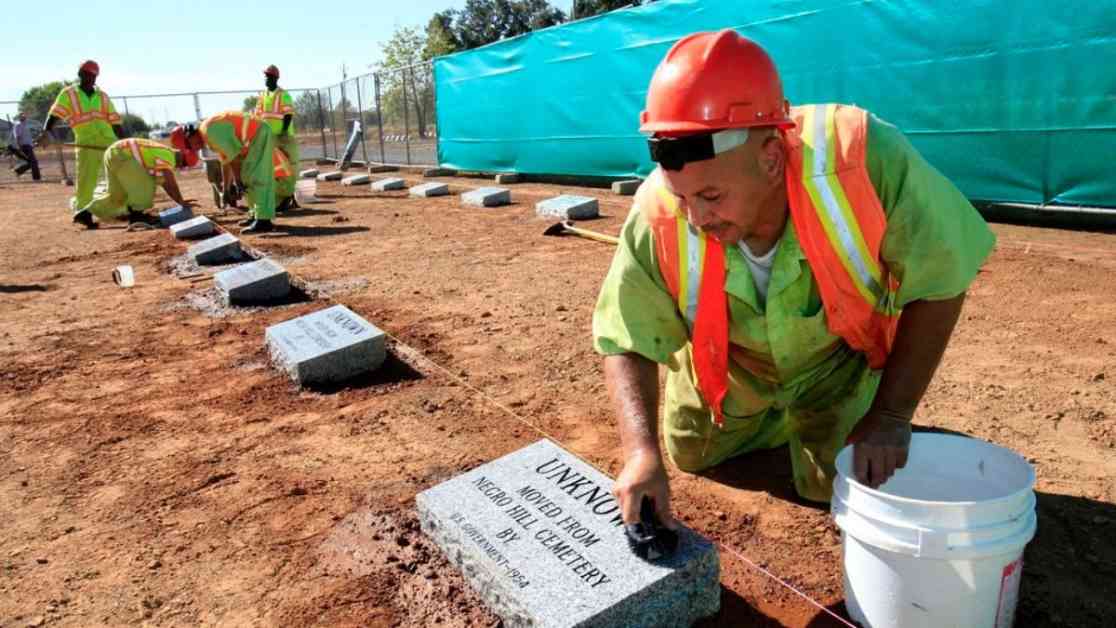California and Nevada voters will have a significant decision to make in the upcoming November elections. They will vote on whether to ban forced prison labor by eliminating language in their state constitutions that traces back to the era of chattel slavery. The proposed measures aim to safeguard incarcerated individuals from being compelled to work under the threat of punishment. In both states, it is not uncommon for prisoners to earn less than $1 per hour for tasks such as fighting fires, cleaning prison facilities, manufacturing license plates, or performing yard work in cemeteries.
Nevada incarcerates approximately 10,000 individuals, all of whom are mandated to work or engage in vocational training for 40 hours per week, unless they have a medical exemption. Some prisoners in Nevada receive wages as low as 35 cents per hour. Advocates like Jamilia Land from the Abolish Slavery National Network view these proposed changes as a crucial step towards ending legalized, constitutional slavery within the states. The timing of these proposals coincides with Vice President Kamala Harris’ historic presidential candidacy, making this election particularly significant.
While several states, including Colorado, Alabama, and Tennessee, have recently eliminated exceptions for slavery and involuntary servitude, the changes were not immediate. In Colorado, where an exception for slavery was removed from the constitution in 2018, incarcerated individuals filed a lawsuit in 2022 against the corrections department, alleging that they were still coerced into labor. The proposed measures in Nevada and California seek to eradicate both slavery and involuntary servitude as forms of punishment for crimes.
One of the most sought-after prison work programs in Nevada is wildland firefighting, where eligible participants earn around $24 per day. However, critics argue that incarcerated individuals are not fairly compensated for the dangerous work they perform. Chris Peterson, the legal director at the American Civil Liberties Union of Nevada, highlights the disparity in wages and the risks involved in these labor programs. Additionally, he points out a state law that provides a modified workers’ compensation program for incarcerated individuals injured on the job.
In California, Governor Gavin Newsom’s administration previously expressed concerns about the financial implications of paying all prisoners the minimum wage if forced labor were to be banned. As a result, the state Senate rejected an earlier version of the proposal in 2022. However, a new law signed by Newsom mandates the Department of Corrections and Rehabilitation to establish a voluntary work program with set wages for incarcerated individuals. This law will only take effect if voters approve the ban on forced labor.
Advocates like California Assemblymember Lori Wilson emphasize the importance of providing incarcerated individuals with opportunities for rehabilitation through therapy or education, rather than forcing them to work. Wilson, who has personal experience with trauma, underscores the impact of receiving the necessary support for overcoming challenges. Formerly incarcerated individuals like Yannick Ortega share their stories of being compelled to work during their time in prison and highlight the significance of access to education and rehabilitative programs.
The proposed measures in California and Nevada reflect a broader effort to address the issue of forced prison labor and its implications on incarcerated individuals. By bringing attention to the need for fair treatment, just compensation, and rehabilitation opportunities, these initiatives aim to create a more equitable system within the criminal justice system. As voters prepare to cast their ballots in November, the outcome of these elections could have a lasting impact on the lives of those currently serving time in prisons in California and Nevada.














